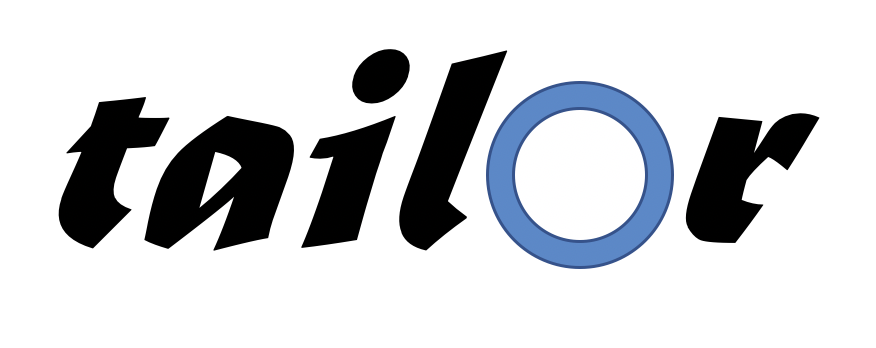PROJECTS
TAILOR
PATIENT-TAILORED SOLUTIONS FOR BLOOD GLUCOSE CONTROL IN TYPE 1 DIABETES

Administrative data
Project reference: PID2019-107722RB-C21
Title: Patient-TAILOREd solutions for blood glucose control in type 1 diabetes – TAILOR
Participating centers:: Coordinated project
Subproject 1: Universitat Politècnica de València (coordinator)
Subproject 2: Universitat de Girona
Principal investigator: Jorge Bondia (coordinator); Josep Vehí
Funded by: Agencia Estatal de Investigación
Duration: 01/06/2020-31/05/2023
Funding awarded: Subproject 1: €220,341.00
Subproject 2: €211,508.00
Project summary
In the design of any system for glucose control in type 1 diabetes, maximization of perceived usefulness and ease of use must be pursued to cover the different psychosocial profiles of patients to whom the technology is addressed. This is still an unmet need in the artificial pancreas, where attrition of use has been recently reported during the post-market surveillance for the first commercial hybrid system. Motivated by this fact, the project TAILOR addresses new technological challenges for automated glucose control in type 1 diabetes aiming at the improvement of glycemic control while matching the patients’ expected interaction with the system, yielding to patient-tailored solutions that maximize perceived usefulness and ease of use to foster the adoption of the technology. As ultimate goal, technological progress to widen the access of technological solutions to all patients that might benefit from them is pursued.
To achieve this goal, either in the artificial pancreas or new technological solutions for insulin pen users integrating a continuous glucose monitor (MDI+CGM), devices should be flexible enough to accommodate to different users, widening its target population. This implies that freedom should be given to the patient regarding management of meals and exercise (with/without announcement, carbs/glucagon) and use of extra wearables (always/sometimes/never) while improving glycemic control with respect to current therapy. To this end, learning tools for a better management of variability and system personalization will be key.
To achieve this goal, the following challenged will be addressed by the project consortium. First, improvement of glycemic control will require new simulation tools better characterizing variability in diverse cohorts. Of special interest will be the study of physiological differences between men and women with respect to the glycemic effect of exercise. Second, new personalization tools based on advanced learning methods will be derived, expectedly improving glycemic control due to a better management of variability. Third, alleviation of patients burden in meal control will be addressed through the development of automatic meal detection systems without detriment of glycemic control, yielding to artificial pancreas systems with optional meal announcement. Fourth, alleviation
of patients burden in hypoglycemia mitigation, especially under unannounced exercise, will be addressed by automatic infusion of glucagon in a dual-hormone artificial pancreas as compared to recommendation of rescue carbohydrates. Fifth, alleviation of decision making burden and improvement of glycemic control in MDI+CGM users will be addressed, translating to this context results from the artificial pancreas. Four clinical studies will be conducted for the evaluation of these technologies.
As final outcome of the project, a new system, jAP-TAILOR, will be developed, featuring a flexible interaction to accommodate to different user profiles, both for artificial pancreas and MDI+CGM, as well as providing satisfactory glucose control.
People
Universitat Politècnica de València
- Jorge Bondia (coordinador)
- José Luis Díez
- Sergio Romero
- Beatriz Ricarte
- Pedro García
- Alejandro J. Laguna
- Juan Fernando Martín
- Ricardo Sanz
- Iván Sala
- Clara Furió
- Michelle A. Caicedo
Óbuda University
- György Eigner
- Levente Kovács
Universitat de Girona
- Josep Vehí (co-IP)
- Quim Armengol
- Ningsu Luo
- Charrise Raamkimsoon
- Aleix Beneyto
- Iván Contreras
- Sayyar Ahmad
- Adrià Parcerisas
Imperial College London
- Pau Herrero
Hospital Clínic de Barcelona
- Ignacio Conget
- Marga Giménez
- Clara Viñals
- Judith Viaplana
Hospital Francesc de Borja de Gandía
- Paolo Rossetti
Hospital Clínico de Valencia
- F. Javier Ampudia
- Ana Palanca
Facultad de Fisioterapia, Universitat de València
- Rodrigo Martín San Agustín
Hospital Sant Joan de Déu
- Roque Cardona

